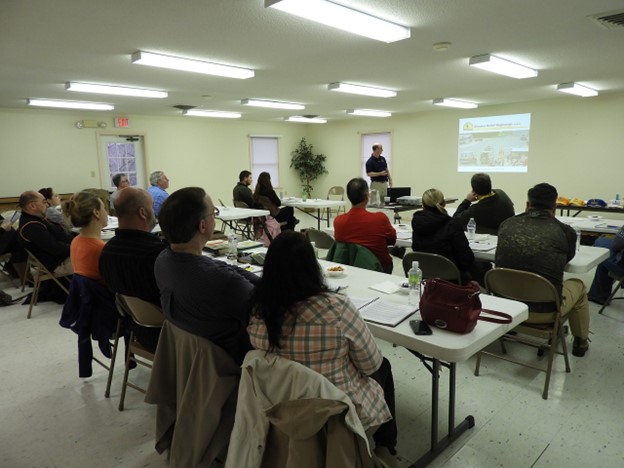We are in an ever-changing landscape in talent acquisition. The tools for identifying top performers have undergone dramatic changes. The growing popularity of psychological assessments has furnished recruiters with a dependable method for talent evaluation. The best part is that the research is systematic and objective. We delve deeper into how making use of Saville assessments can improve your hiring process.
Psychological tests are standardized tests designed to measure human abilities, as well as symptoms in a broader sense. Tools have improved significantly, yet the ultimate goal remains the same – the need for top talent. But how effective are these psychological measures in achieving this goal?
The Ultimate Goal: Finding the Best Talent
The goal of every recruitment process is to achieve one key outcome. That is the best talent that needs to be brought into the organization. A lot of research has been done over the years. Their psychometric assessments have shown a correlation between performance and success. It applies to various roles.
According to a recent study, cognitive ability tests can account for about 26% of the variance in performance. This shows the power of psychoanalysis. They provide insight into a candidate’s ability to thrive in a given role.
Research also shows that psychometric test results correlate with factors such as:
- Leadership power
- Ability to withstand stress
- Interpersonal skills
All of these skills contribute greatly to employee productivity. It helps in their career development as well.
These are the obvious links between testing and success. Psychological assessments provide recruiters with a data-backed approach to talent assessment. One should not rely solely on measures such as unstructured interviews. These tests add value to the hiring process. The Saville Assessment, in particular, provides a reliable way of identifying top-performing talent.
The Underutilization of Psychometric Assessments
Decades of research prove the value of psychometric assessments. These assessments have not yet been used as frequently as expected in the recruitment process.
Top companies certainly leverage these tests. But a 2021 survey showed only 49% of HR managers use psychometric assessments. So what explains this disparity?
Several factors contribute to the underutilization of psychometric testing:
- Cost – It’s often cited. But affordable, convenient online assessments are increasingly available.
- Time – Constraints in time deter some organizations.
- Resources – Administering assessments to large applicant pools needs more resources.
- Validity – Misconceptions around validity still persist. That is despite statistical links between testing and performance.
These tests measure abilities and traits. There is also a belief that other factors determine success. Motivation and experience are two of those. This is certainly true. And a multi-pronged evaluation is ideal. Still, ability testing provides incremental predictive power.
Psychometric assessments become more turnkey and affordable. And awareness of their benefits is spreading. Adoption rates will likely grow. But for now, many companies are still failing to tap into its potential.
The Tangible Benefits of the Saville Assessment
Psychometric testing is a powerful tool. It can help remove human bias from the hiring process. It uses objective measures of:
- Ability
- Personality
Employers can make more informed decisions. Renowned companies use psychometric tests in hiring. Examples of these companies are:
- Procter & Gamble
- McKinsey & Company
Sales Executives hired using their assessments sold an extra $248,000 per year each. That came from Saville Assessment data. The assessments enabled hiring managers to assess key sales competencies. This demonstrates the direct financial impact psychometric testing can deliver.
Beyond sales, the Saville Assessment offers over 30 job-specific waves. It focuses on key competencies needed across various roles. The assessments measure concepts like:
- Problem-solving
- Influencing
- Interpersonal skills
This is all through relevant simulations tailored to the job. This level of customization enables precise candidate screening.
We now have a clearer picture of Saville Assessment’s tangible impact. Let’s address some frequently asked questions about the Saville Assessment.
FAQs
Why are psychometric assessments not more commonly used in hiring?
While their benefits are proven, potential barriers prevent widespread adoption. These challenges include:
- Time constraints
- Administrative challenges
- Misconceptions about validity and cost
But simple, convenient tools like the Saville Assessment help overcome these obstacles.
How does the Saville Assessment differ from other psychometric tests?
The Saville Assessment offers job-specific waves. Each has tailored, realistic simulations directly relevant to the role’s required competencies. This degree of customization provides unparalleled insights compared to generic assessments.
What is the ROI when using the Saville Assessment in hiring?
Data shows direct performance improvements. For example, the $248,000 sales boost when using the Saville Assessment to hire top talent. The long-term benefits of optimized hiring decisions make it a high-value investment.
Takeaway
The recruitment scene is quickly and always changing. Tried and tested tools like the Saville Assessment provide data-driven insights. It enhances hiring strategies. Uncovering top talent requires objective assessments. It should be tailored to each role’s unique competencies. With psychometric testing, organizations gain a competitive edge in building high-performing teams.
The Saville Assessment offers a research-backed approach to transform talent acquisition. Learn more about realizing the benefits of psychometric testing in your organization today.
Guest writer.




























